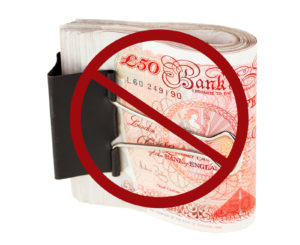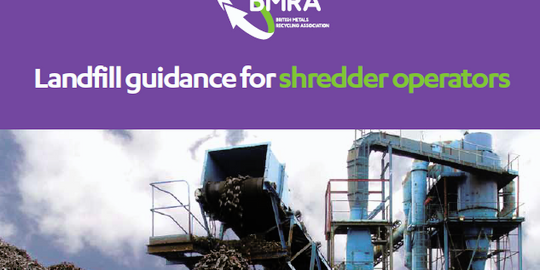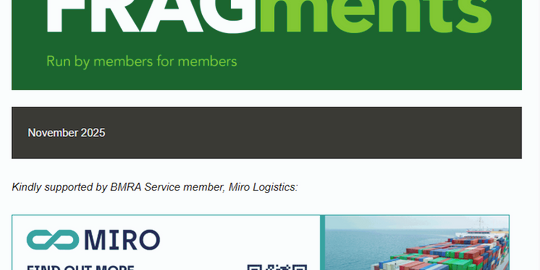New blog post considers the impact the cash ban and how the associated Acts can be better enforced.
In the next couple of blogs, I will cover some of the legislation and regulation that affects the metals recycling industry. I will discuss how an uneven playing field has developed resulting in legal operators having to compete against illegally operating yards.
The Scrap Metal Dealers Act 2013 (SMDA) and the Air Weapons and Licensing (Scotland) Act 2015 (AWLA) made it illegal for metal recyclers to pay cash for scrap metal. Sellers can only be paid by bank transfer, cheque or, additionally in England and Wales, by a prepaid cash card. Both Acts also require operators to take copies of identification documents such as a photo driving licence.
The aim of the Acts are to tackle metal theft by making it much harder for thieves to dispose of stolen metal anonymously.
This represented a significant change for the industry and initially presented many challenges. However, there were some positive outcomes. Site safety increased because large amounts of cash were no longer kept on site. This led to a reduction in costs that were previously paid out for security and insurance.

Sadly, some operators decided to break the law and continued to pay cash, despite being fully licensed and environmentally compliant. Some started to pay cash again after seeing others get away with it. And then there are those cash payers who always operated illegally as they are neither licensed nor environmentally compliant and who might well be flying under the radar.
We are contacted about cash-paying operators all the time. We know that legitimate yards are losing thousands of pounds worth of business to yards that pay cash. At this stage its worth pointing out that, although not stated formally in the Acts, those who receive cash for their scrap metal can also be prosecuted and be subject to a potentially unlimited fine as they are deemed to be aiding and abetting a criminal act.
Yards that pay cash for scrap metal are of particular interest to those with stolen metal because identity checks are likely to be limited, or more likely, non-existent. Metal that is attractive to thieves typically includes church roof lead, copper cabling such as signalling cable and other high-value metals such as aluminium. Visit the BMRA website to see the array of metal that gets stolen.
As an Association, we support the Acts, but remain extremely concerned about the lack of enforcement caused in turn by a severe lack of funding. The answer may be a combination of enforcement and to also starve the illegally operating sites of material. Government Agencies such as DVLA and HMRC could assist with this. We recently delivered a document to the Department for Business, Energy and Industrial Strategy (BEIS), highlighting where we would like to see more investment in the enforcement of the SMDA and AWLA. This includes:
- More funding for feet on the street and associated administration to visit and shut down illegally operating yards.
- Introducing and enforcing declarations and other evidence as part of a tax return, to ensure manufacturing/service/demolition industries sell their scrap to the legitimate recycling industry.
- Instigating communication’s programmes to make the public and industry aware of laws around cash payments for scrap.
- Ensuring the law around the disposal of end-of-life vehicles (ELV) and scrap metal is clearly stated in their issued documentation.
- Strengthening DLVA rules by ensuring proof that ELV disposal has been done within the law via a traceable transaction, thus pushing scrap cars towards the legitimate industry.
The above actions could help make scrap producers, be they an engineering works or an individual scraping a car, more aware of the law and to ensure their scrap metal or car is processed within the legitimate supply chain.
We urge people to think about how they are selling their scrap metal. Not only because it is illegal to receive cash, but if a scrap yard is paying cash, you have to wonder where the material of your fellow customers came from?
The social impact of paying cash due to its association with metal theft can affect communities, think church roof lead. For the sector, the impact economically can hamper the move towards a full circular economy. The sector needs investment, which is simply not there if the industry is not able to compete on a level playing field.
Find out how to legally sell your scrap metal here. Visit www.recyclemetals.org to find a legitimate scrap dealer in your area.



